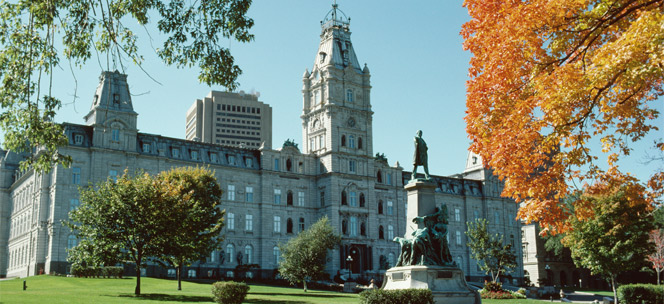Quebec's unsurprising low ranking in the liberty index

Each year, the Fraser Institute ranks the 60 states and provinces north of Mexico according to their economic liberty, using indicators such as size of government, taxation and labour market regulation. Under such criteria, it should be no surprise that Quebec ranks near the bottom (55th) of the list. Here are just a few reasons why La Belle Province is so far behind Alberta (1st) and Saskatchewan (2nd).
The most important is obviously the size of government. No other province has so many social programs, such as $7-a-day universal daycare, subsidized low-cost electricity and low-cost university tuition (which, according to Statistics Canada, doesn’t influence attendance).
And $9 billion in equalization payments from other provinces is still not enough to pay for these lavish expenditures. Quebec also taxes its citizens like no other jurisdiction north of the Rio Grande. A person in the top income bracket can pay up to 55% of his salary in taxes since a new 25.75% tax bracket was recently added. Unfortunately, it hasn’t yielded the revenues former Finance Minister Nicolas Marceau expected, still leaving a deficit. As an economist, he should have known about the Laffer Curve, which predicts that “too much tax kills the tax.”
Considering such financial mismanagement, it’s no wonder Quebec is the most heavily indebted province in the country, nearing 55% of its GDP. Including everything that falls under government jurisdiction (schools, municipalities, etc.), Quebec is the fifth-most indebted jurisdiction on the planet according to the Montreal Economic Institute.
The size of the debt is only matched by politicians’ indifference to the situation, as reflected by former Premier Pauline Marois’ shrug when Fitch Ratings downgraded its outlook on Quebec’s credit rating from stable to negative because of repeated deficits, presently sitting at $2.5 billion.
Finally, Quebec’s labour market is outrageously skewed in favour of unions. Indeed, they can get into a business without a secret ballot, union dues are tax deductible and can be used however the head of the union sees fit and let’s not forget the anti-scab law, which gives more time for strikers to get a good deal. In other words, and especially in the government, unions call the shots, which is why former premier Jean Charest failed his “state re-engineering” in 2003.
As you can see, effort is severely punished in Quebec with high taxes and innovation is hindered with stiff labour regulations. Combined with an apparent distrust of people who actually create wealth and jobs, as shown by a recent survey showing that half the population distrusts the private sector to improve the economy, this creates a province bound to soon have lower net income per capita than PEI, the lowest in Canada. This scenario is not likely to change any time soon, since no party at the National Assembly seriously questions the mammoth state it administers.